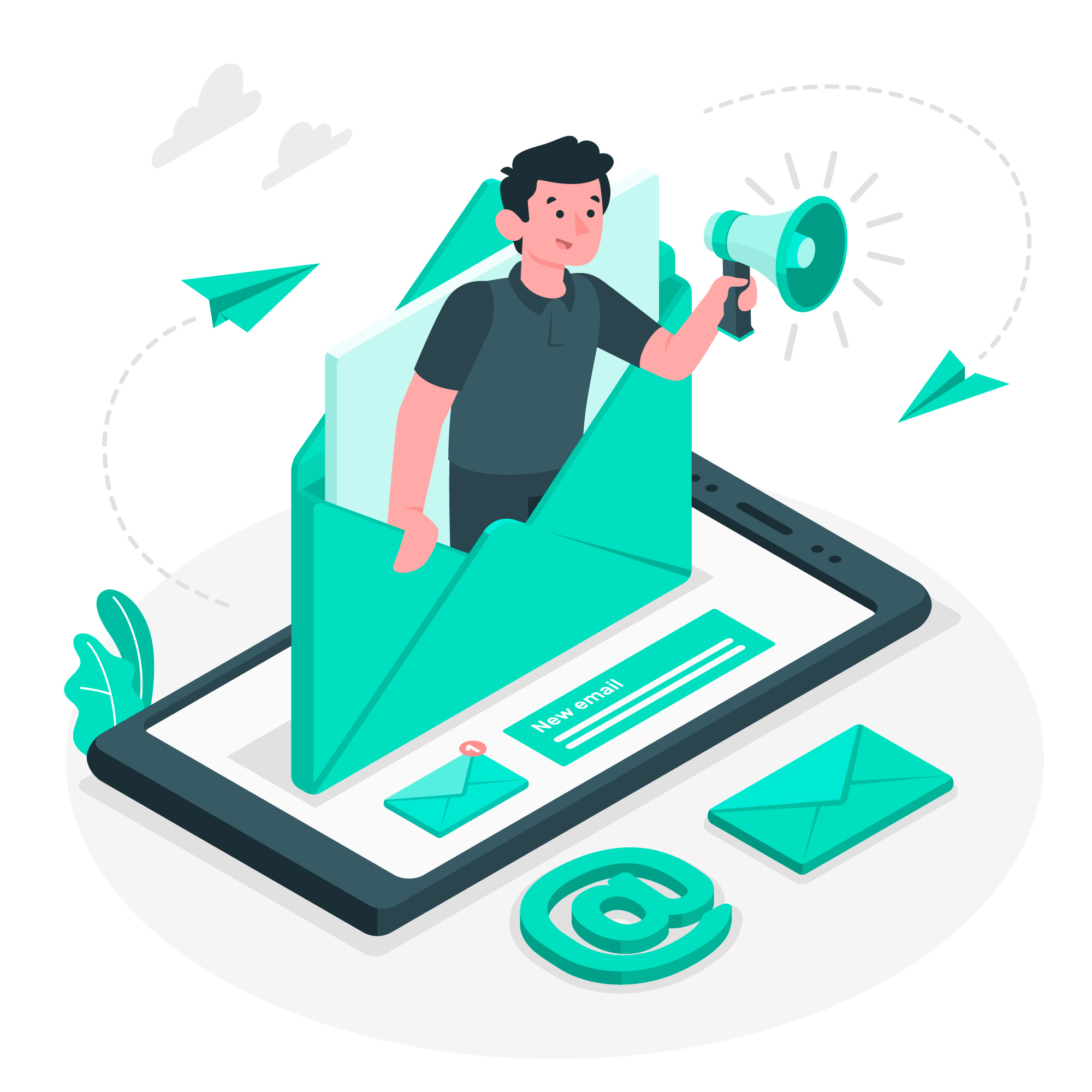Email Evolution: 20 Effective Email Marketing Topics
Email Evolution: 20 Effective Email Marketing Topics
Email marketing has significantly evolved over the years, becoming a crucial tool for businesses to connect with their audience. From simple text messages to sophisticated, personalized campaigns, the transformation of email marketing is a testament to its enduring relevance. Let’s delve into the evolution of email marketing and explore 20 effective topics that are shaping its landscape today.

1. The Dawn of Email Marketing
Email marketing began in the early days of the Internet with basic text-based messages sent to broad lists. This initial phase was marked by a lack of personalization and segmentation, focusing more on mass communication.
2. Personalization Takes Center Stage
As the competition grew, personalization became key. Marketers started using personalized subject lines and tailored content to engage their audience better. Personalized emails significantly improve open and click-through rates.
3. Segmentation for Targeted Email Marketing
Segmentation involves dividing an email list into smaller groups based on specific criteria like demographics or behavior. This approach allows for more targeted and relevant messaging, enhancing engagement and conversion rates.
4. Automation Revolution
Email automation transformed marketing by allowing businesses to send timely, relevant messages without manual intervention. Automated workflows, such as welcome sequences and follow-up emails, nurture leads and drive conversions.
5. Responsive Design for Mobile Users
With the rise of smartphones, emails must be mobile-friendly. Responsive design ensures emails look good and function well on all devices, improving user experience and engagement.
6. Interactive Content
Adding fun elements like polls, quizzes, and GIFs can make your emails much more engaging. This not only captures the audience’s attention but also provides valuable data on their preferences and behaviors.
7. AI and Machine Learning
Artificial intelligence and machine learning enable predictive analytics, content optimization, and personalized recommendations. These technologies help marketers deliver more relevant and timely content to subscribers.
8. Hyper-Personalization
Leveraging AI, marketers can now deliver hyper-personalized content to individuals at scale. This includes customized product recommendations and personalized offers, enhancing customer satisfaction and loyalty.
9. Behavioral Trigger Emails
Trigger emails are automated responses to specific user actions, such as abandoned cart reminders or re-engagement emails. These timely messages are effective in driving conversions and reactivating dormant subscribers.
10. Data Privacy and Compliance
With increasing data privacy concerns, compliance with regulations like GDPR and CCPA is crucial. Marketers must obtain explicit consent, respect unsubscribe requests, and protect subscriber data to maintain trust.
11. Storytelling and Brand Narratives
Emails that tell compelling stories and convey brand narratives can create emotional connections with the audience. This strategy fosters loyalty and strengthens the brand-consumer relationship.
12. User-Generated Content
Encouraging subscribers to share reviews, testimonials, and social media posts enriches email content. User-generated content adds authenticity and credibility, enhancing engagement and trust.
13. Cross-Channel Integration
Integrating email marketing with other channels like social media and content marketing ensures consistent messaging and maximizes reach. Cross-channel strategies enhance the overall effectiveness of marketing campaigns.
14. Thought Leadership and Personal Branding
Email newsletters are powerful tools for establishing thought leadership. By sharing insights, expertise, and industry updates, individuals and brands can position themselves as authorities in their field.
15. Interactive Email Campaigns
Innovations in email technology enable interactive campaigns featuring embedded videos, live polls, and gamification elements. These interactive emails provide immersive experiences that boost engagement.
16. AI-Optimized Subject Lines
AI algorithms can predict which subject lines will resonate most with recipients, improving open rates. By optimizing subject lines with AI, marketers can enhance the effectiveness of their email campaigns.
17. Personalized Product Recommendations
E-commerce brands can use AI to deliver personalized product recommendations based on browsing and purchase history. This helps make your emails more relevant, which can increase click-through rates and conversions.
18. Dynamic Content Blocks
Dynamic content blocks allow emails to be tailored to individual recipients based on their preferences or behaviors. This customization leads to more engaging and relevant email experiences.
19. Email Marketing Automation Platforms
Modern email marketing automation platforms offer features like templates, A/B testing, and analytics. These tools streamline workflows, optimize performance, and drive better results.
20. The Future of Email Marketing
The future promises even greater personalization and interactivity, integrating emerging technologies like augmented reality and voice assistants. Marketers must stay innovative and adaptive to meet evolving consumer expectations.
Conclusion
The evolution of email marketing highlights its adaptability and enduring value. By embracing personalization, automation, and interactive content, marketers can create more engaging and effective email campaigns. As technology advances, email marketing will continue to be a cornerstone of digital strategies, driving engagement, loyalty, and revenue for businesses of all sizes.

